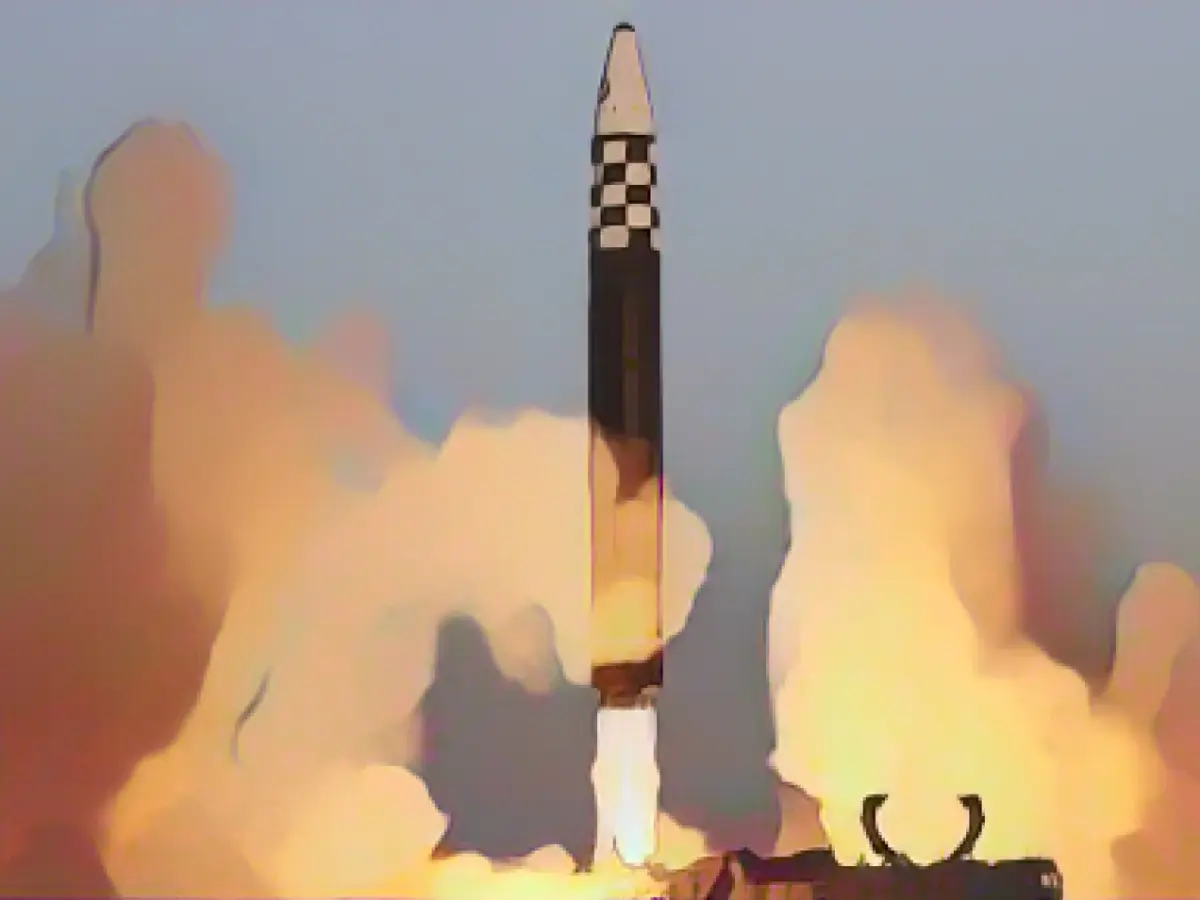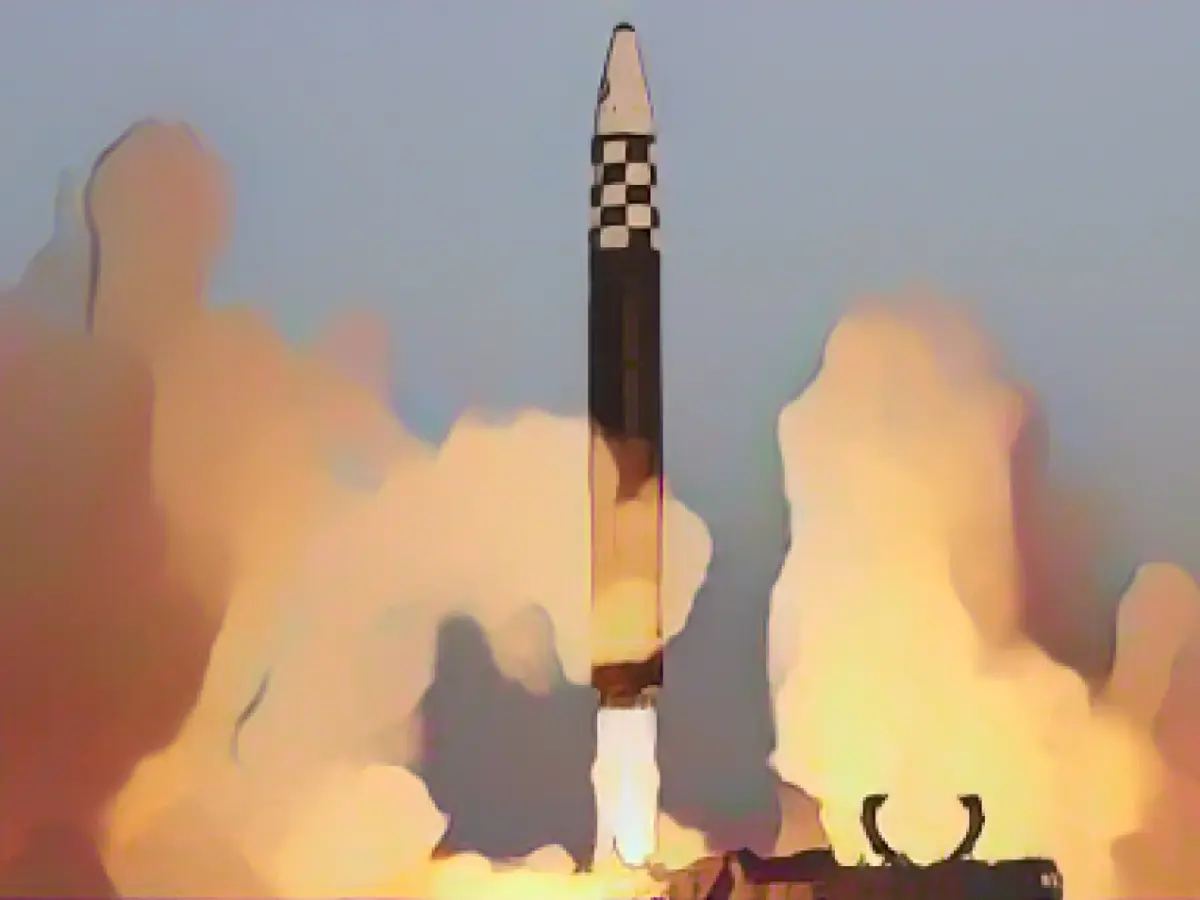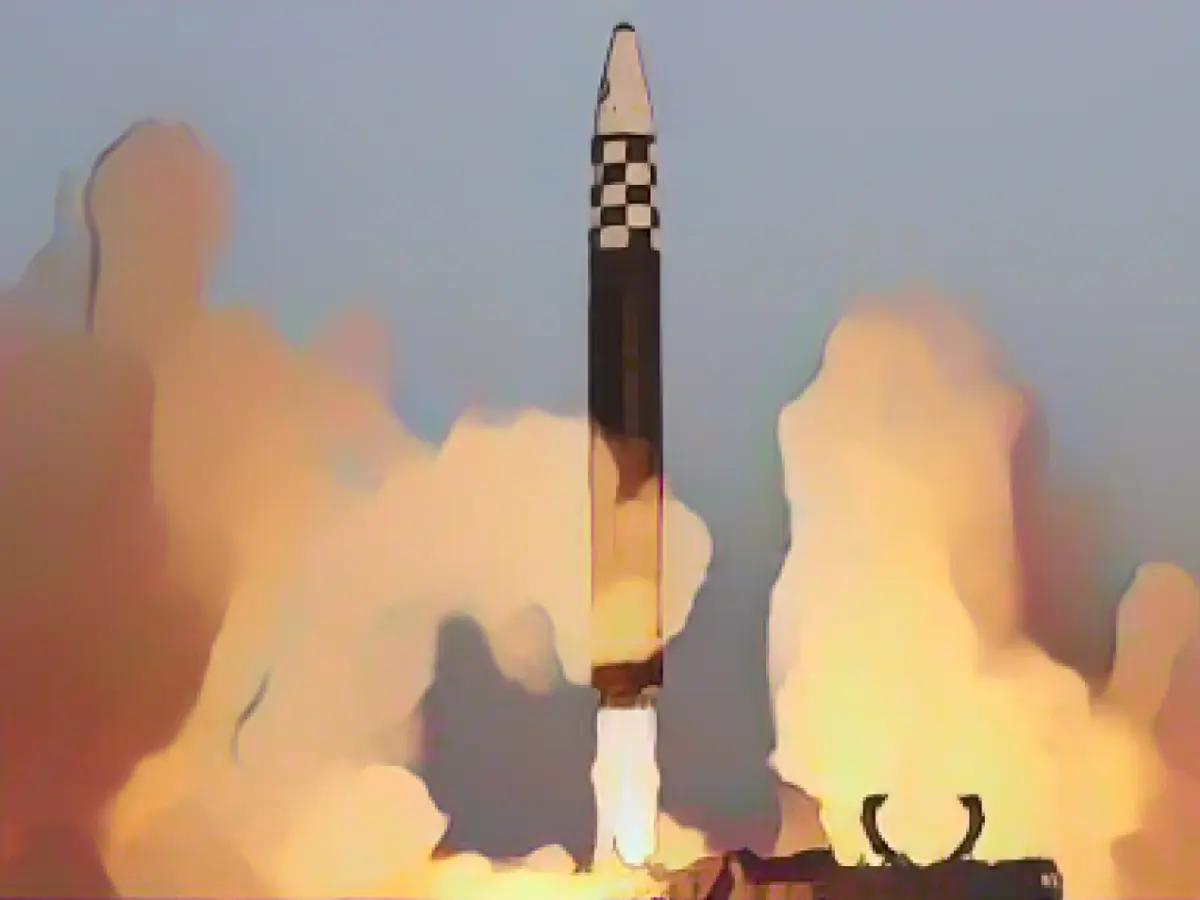North Korea's Latest Missile Stunt: A Potential Threat to Regional Stability
In a bold and concerning move, North Korea fired a long-range missile on a Monday, according to South Korea and Japan. The missile, suspected to be an intercontinental ballistic missile (ICBM), was launched from a steep angle, flying around 1,000 kilometers before falling into the East Sea (Sea of Japan). The missile, if its potential reach of 15,000 kilometers is accurate, could theoretically reach the U.S. mainland, raising alarm bells globally.
This isn't the first time North Korea has shown off its arsenal in a year filled with military tests. In fact, this was the second time within twelve hours that the isolated state conducted a ballistic missile test. The first was a short-range missile launch, despite UN prohibition orders.
The timing of North Korea's latest missile test is significant, as it came just hours after the USS Missouri, a nuclear-powered American submarine, docked in the South Korean port city of Busan. Although the temporary deployment of these and other US weapons systems is intended to serve as a deterrent to North Korea, the one-party state saw it as another provocation.
The international community, particularly Japan, has expressed concern over the potential threat to "peace and stability in the region." Japan's Prime Minister Fumio Kishida voiced his concerns, while South Korea accused North Korea of serious provocation. The UN resolutions prohibit North Korea from launching or testing ballistic missiles of any range.
These UN resolutions are in place due to North Korea's nuclear weapons and missile program, which is subject to tough international sanctions. The USA and its partner countries, including South Korea, Japan, and Australia, imposed new sanctions on North Korea recently due to its launch of the first military reconnaissance satellite in November. The sanctions are in place due to the direct relation to North Korea's ICBM program.
Tensions on the Korean peninsula have significantly heightened due to a series of missile tests and guided missile launches by North Korea, primarily aimed at the nuclear power USA. North Korea accuses the USA of pursuing a hostile policy, and recent joint military exercises between the USA and South Korea have added fuel to the fire.
Despite the international condemnation and sanctions, North Korea continues to push the boundaries of military advancement. Shortly before the latest missile test, North Korea also conducted a test of a strategic cruise missile, which flew 1,500 kilometers before hitting its targets. This test was part of a series of missile tests, which includes short-range ballistic missiles and an intermediate-range hypersonic ballistic missile.
With each missile test, North Korea reinforces its commitment to ensuring regional stability through a more powerful military. The growing military tensions between Japan and North Korea were highlighted when the latest missile test involved a long-range rocket that could potentially reach Tokyo.
As tensions continue to rise, the international community, particularly the United States and its allies, remains committed to applying "maximum pressure" to counter North Korea's nuclear threat. The UN Security Council, in a recent emergency session, promised further significant measures against these violations, reiterating that North Korea's actions are a "grave violation" of Security Council resolutions[1]. The US, Japan, and South Korea, in a joint statement at the G20 meeting in Germany, also condemned the ICBM test as a "major escalation" that directly violates multiple UN Security Council resolutions[2].
Relevant Insights:
- North Korea's recent ICBM test raises concerns about its nuclear weapons and missile program, which is already subject to tough international sanctions[1].
- The test came just hours after the USS Missouri, a nuclear-powered American submarine, docked in the South Korean port city of Busan, adding to tensions between the USA and North Korea[3].
- The latest missile test by North Korea was the second test conducted within twelve hours and defied UN prohibition orders[3].
- The Kyodo News in Tokyo reported that North Korea's latest missile test involved a long-range rocket that could potentially reach Tokyo, highlighting the growing military tensions between Japan and North Korea[2].
Sources:
[1.] "UN Security Council to Discuss North Korea Missile Tests," BBC News, February 5, 2025, . [2.] "Japan, US and South Korea condemn North Korea's rocket launch," Al Jazeera, February 5, 2025, . [3.] "North Korea tests second ballistic missile in 12 hours," Reuters, February 5, 2025, . [4.] "US, Japan and South Korea condemn North Korea's ICBM launch," Deutsche Welle, February 5, 2025, . [5.] "North Korea's Latest Missile Test: What You Need to Know," The New York Times, February 5, 2025, .






